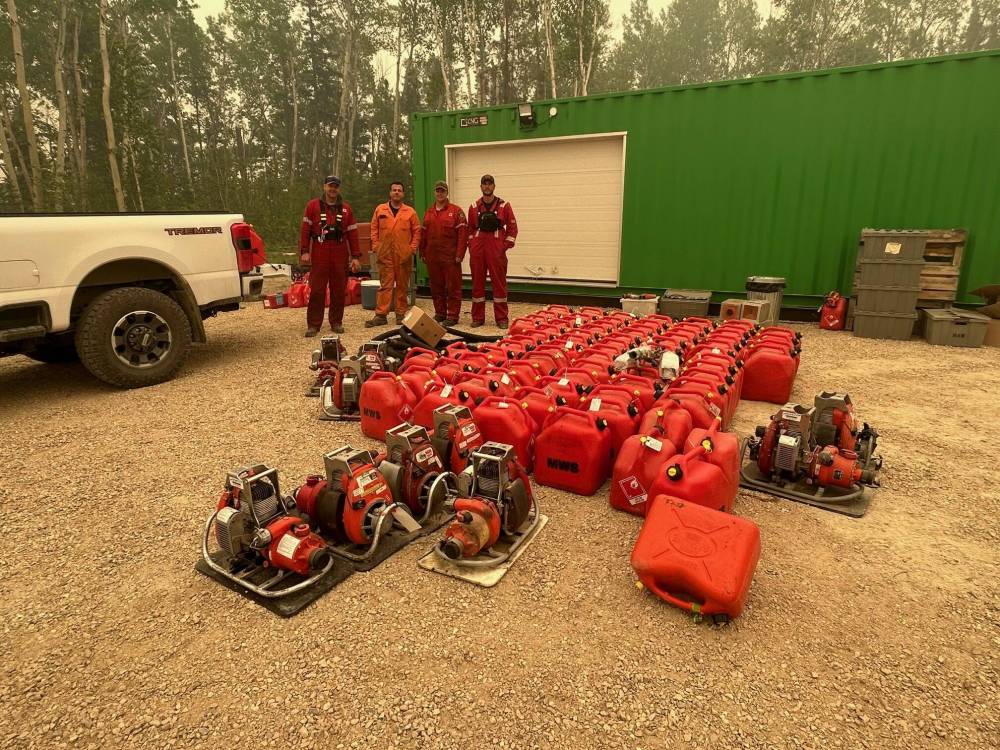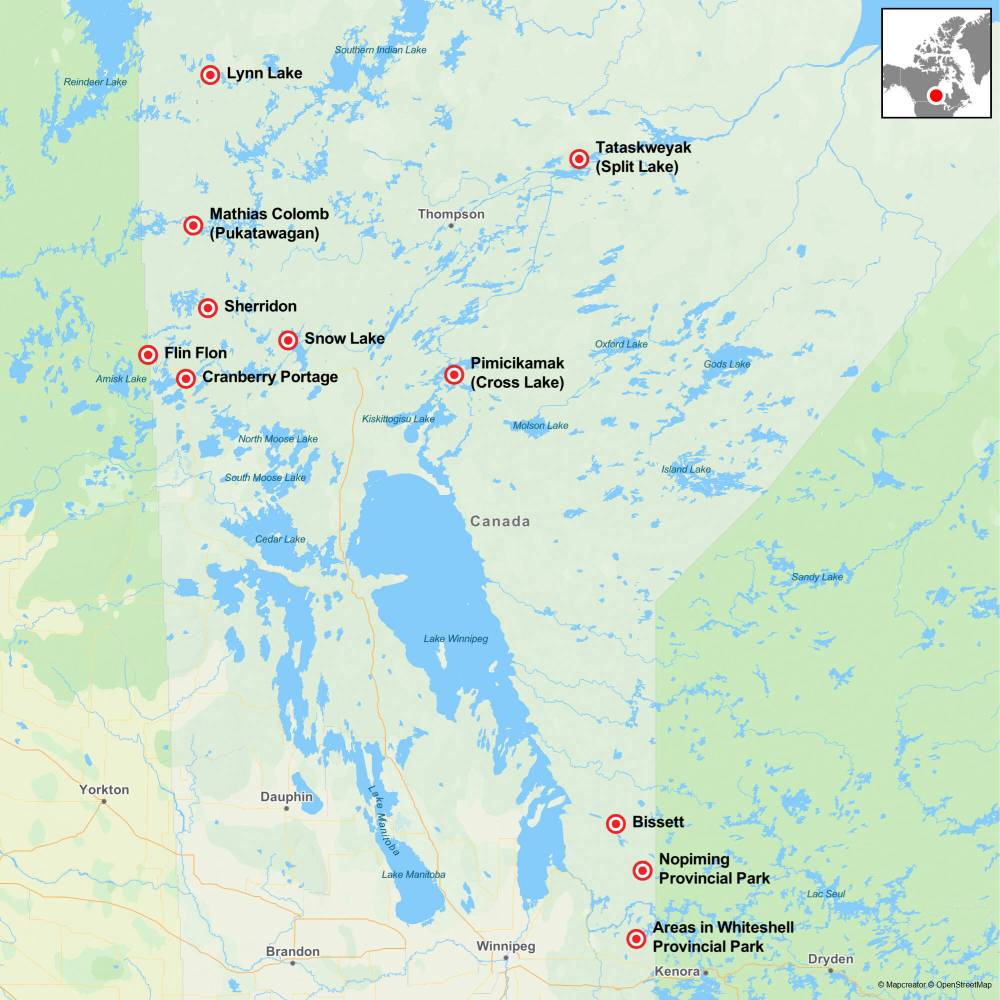Some evacuees in Dauphin unable to get province’s daily stipend
Red Cross, which is distributing money, advising people without photo ID they have to travel to Winnipeg for verification
Advertisement
Read this article for free:
or
Already have an account? Log in here »
To continue reading, please subscribe:
Monthly Digital Subscription
$0 for the first 4 weeks*
- Enjoy unlimited reading on winnipegfreepress.com
- Read the E-Edition, our digital replica newspaper
- Access News Break, our award-winning app
- Play interactive puzzles
*No charge for 4 weeks then price increases to the regular rate of $19.95 plus GST every four weeks. Offer available to new and qualified returning subscribers only. Cancel any time.
Monthly Digital Subscription
$4.99/week*
- Enjoy unlimited reading on winnipegfreepress.com
- Read the E-Edition, our digital replica newspaper
- Access News Break, our award-winning app
- Play interactive puzzles
*Billed as $19.95 plus GST every four weeks. Cancel any time.
To continue reading, please subscribe:
Add Free Press access to your Brandon Sun subscription for only an additional
$1 for the first 4 weeks*
*Your next subscription payment will increase by $1.00 and you will be charged $16.99 plus GST for four weeks. After four weeks, your payment will increase to $23.99 plus GST every four weeks.
Read unlimited articles for free today:
or
Already have an account? Log in here »
Hey there, time traveller!
This article was published 10/06/2025 (210 days ago), so information in it may no longer be current.
Firefighters held the line or made progress against some out-of-control wildfires in Manitoba Tuesday, while some evacuees faced barriers to qualify for a $34-per-day stipend that began last week.
Sheryl Matheson, deputy mayor of Sherridon, said Canadian Red Cross officials told some of the community’s 60 evacuees, who are staying in hotel rooms in Dauphin, they would have to travel to a reception centre in Winnipeg — a roughly seven-hour return trip — to verify their identity in person to begin receiving payments.
“It’s really hard that they’re already displaced, and they can’t get that financial support,” Matheson said by phone from Dauphin. “Most of it is, ‘We need to validate your ID,’ but no one is here to do that.”

Many of the evacuees do not have photo ID, do not speak English as a first language, or do not have access to email or online banking, she said.
Matheson said she hasn’t seen any Red Cross officials in Dauphin, where some evacuees from Flin Flon and Cranberry Portage are also staying.
She later published an open letter on social media, urging the Red Cross to provide urgent, practical and on-the-ground solutions.
“The system in place assumes a level of digital and logistical access that simply does not exist for many evacuees,” Matheson wrote.
She hailed local volunteers who’ve been providing meals and essentials to evacuees in Dauphin, and also thanked the province’s emergency social services for providing accommodations.
“I’m really thankful to the people of Dauphin,” Matheson told the Free Press.
About 21,000 evacuees from 27 communities have registered with the Red Cross in one of Manitoba’s largest-ever evacuations.
A Sherridon evacuee, who agreed to speak on condition of anonymity, said she phoned the Red Cross Monday to learn the status of the online registration form she submitted June 4.
“My status was listed as ‘not impacted by wildfire,’” the woman said. “I asked why it stated that. They said my community wasn’t impacted. I just felt very frustrated.”
Sherridon, about 900 kilometres northwest of Winnipeg, has had a mandatory evacuation order since May 26.
“It’s really hard that they’re already displaced, and they can’t get that financial support.”–Sheryl Matheson
The woman said she left her name and phone number for a manager. She was waiting for a return call Tuesday.
She said funds from the Wildfire Incidental Support Program will help cover the cost of some essentials for her and her eight-year-old child.
“There are some of us that don’t have a lot of income,” the woman said.
The Red Cross is distributing funds to evacuees from municipalities and non-First Nation communities on the provincial government’s behalf. Manitoba Keewatinowi Okimakanak is distributing funds to First Nation evacuees on behalf of the federal government.
Eligible evacuees aged 13 and older receive $34 per day, while those aged 12 and under receive $27 per day.
Evacuees must be permanent residents of Manitoba; have a primary residence in a community or First Nation placed under a mandatory evacuation order on or after May 23; be registered with the Red Cross; and have their identity confirmed in order to receive funds.
Tracy Wheeler-Anderson, who was forced to leave Cranberry Portage, phoned the Red Cross twice Monday regarding the status of her registration application.
She is hoping to receive funds to help cover the cost of food while she is displaced.
“They said my ID had not been validated and I’d have to do that in person in Winnipeg, Brandon or Thompson,” said Wheeler-Anderson, who is staying with family in Crystal City, about 140 kilometres southeast of Brandon. “My first thought was I would burn as much money in gas going to validate my ID as I would be getting back.”
She believes some people who are answering calls to the Red Cross may not have complete information.
“My status was listed as ‘not impacted by wildfire’. I asked why it stated that. They said my community wasn’t impacted. I just felt very frustrated.”–Sherridon resident
“They’re certainly not intentionally misleading anyone. I think its just that they are not getting the information they need to pass on to people,” she said.
A Red Cross spokesperson said people may be asked to meet in person with a representative if their identity cannot be verified with information provided during the registration process.
People who are unable to visit in person should contact the Red Cross to discuss options, such as virtual authentication, that are best suited to their situation, the spokesperson said.
They said staff and volunteers are working around the clock to help people as quickly as possible.
The Manitoba Métis Federation said some evacuees received spam emails that falsely claimed to be from the Red Cross and asked for banking details.
The MMF told evacuees to stay alert and not provide any financial information if they receive such an email.
The Manitoba Wildfire Service reported 25 active blazes Tuesday, down from 29 Monday. A provincewide state of emergency remains in place.
Northeast Manitoba’s fire danger was high to extreme, while low to moderate danger was reported elsewhere.
The province said a chance of rain in the North will bring an increased risk of new fires due to lightning strikes.
“We are just praying for some more rain.”–Lori Forbes
Favourable conditions helped crews who were protecting communities from out-of-control fires.
“It’s a slower day,” Flin Flon Mayor George Fontaine said. “It’s not one of those big windy days, so it’s giving people a chance to reorganize.”
Manitoba’s largest blaze — about 307,781 hectares, or roughly seven times the size of Winnipeg — was burning near Flin Flon and Sherridon, and some communities across the boundary in Saskatchewan.
Lori Forbes, emergency co-ordinator for the Rural Municipality of Kelsey, which includes Cranberry Portage, said higher humidity levels helped crews made good progress on a roughly 4,900-hectare fire north of Wanless.
“We are just praying for some more rain,” she said.
Fontaine and Forbes cautioned that it could still be some time before it is safe for people to return to evacuated communities.
Parts of Whiteshell Provincial Park are scheduled to reopen to permanent residents, cottagers and commercial operators Wednesday.
It is possible because suppression efforts are holding the line against an out-of-control fire on the Manitoba-Ontario boundary, the province said.
Crowduck Lake and Big Whiteshell lake are expected to reopen at 8 a.m. Florence Lake, Nora Lake and Ophir Siding are expected to reopen at 4 p.m. The areas have been closed since May 15.
The province cautioned that anyone returning to the reopened areas should be prepared to leave again with little notice.

Manitoba’s firefighting effort was again bolstered by reinforcements from south of the border.
About 107 personnel, primarily wildland firefighters, were scheduled to arrive Tuesday to bring the total to about 282, said Tina Boehle, a spokeswoman for the U.S. National Interagency Fire Center in Boise, Idaho.
They include Hotshot crews that are typically assigned to the most challenging terrain or priority wildfires in the U.S.
“They can be self-sufficient for multiple days on the ground,” Boehle said. “Usually, they deal with some pretty tough situations down here.”
chris.kitching@freepress.mb.ca

Chris Kitching is a general assignment reporter at the Free Press. He began his newspaper career in 2001, with stops in Winnipeg, Toronto and London, England, along the way. After returning to Winnipeg, he joined the Free Press in 2021, and now covers a little bit of everything for the newspaper. Read more about Chris.
Every piece of reporting Chris produces is reviewed by an editing team before it is posted online or published in print — part of the Free Press‘s tradition, since 1872, of producing reliable independent journalism. Read more about Free Press’s history and mandate, and learn how our newsroom operates.
Our newsroom depends on a growing audience of readers to power our journalism. If you are not a paid reader, please consider becoming a subscriber.
Our newsroom depends on its audience of readers to power our journalism. Thank you for your support.
History
Updated on Tuesday, June 10, 2025 6:45 PM CDT: Adds comments, details, new headline.














